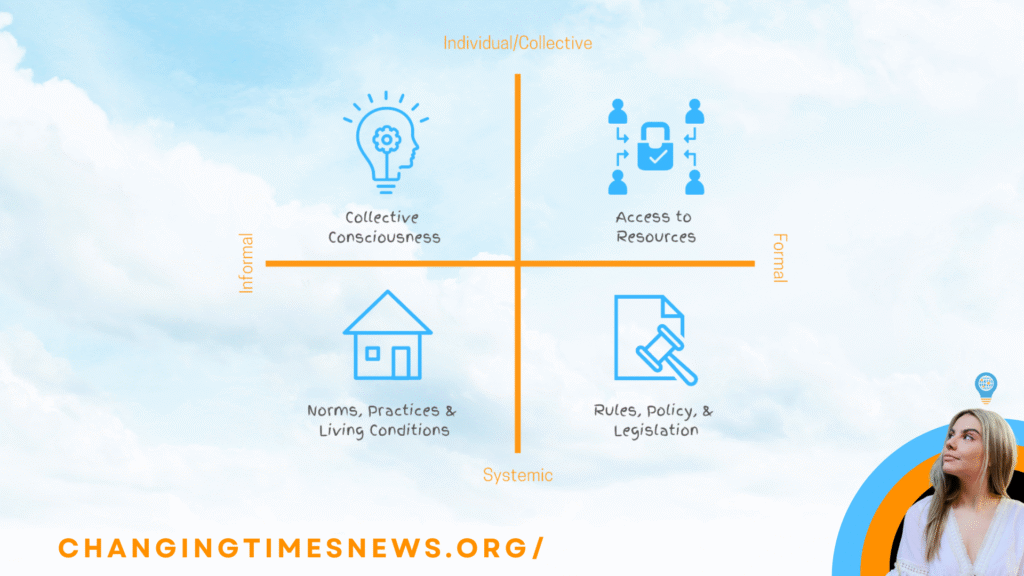In an age where information is more accessible than ever before, the challenge is no longer finding knowledge—it is discerning truth. This week on Changemaker Q and A, investigative author Michael reflected on his lifelong journey of questioning mainstream narratives, from the Vietnam War to today’s debates over climate, health, and freedom of speech.
For Michael, now 83, the seeds of doubt were first planted during the 1960s, when underground newspapers and protest songs challenged the U.S. government’s justification for the Vietnam War. Later, he noticed similar patterns of corporate influence and media manipulation around cigarette advertising—where, despite mounting evidence, the dangers of smoking were suppressed for decades. His investigations eventually culminated in the book Information Warfare: Battle for Truth and Freedom, which explores how governments, industries, and media can shape public perception.
Tactics of Manipulation
Michael argues that censorship and selective storytelling remain central tools of information control. He recalls his own experience during the COVID-19 pandemic when simply questioning vaccine safety on a Facebook livestream led to his comments being hidden. “Every time I tried to post, a pop-up came up saying only I could see my question,” he told me. “That’s when I realized what was going on.”
This aligns with concerns raised by free expression groups. The Electronic Frontier Foundation has documented how content moderation decisions during the pandemic sometimes silenced legitimate debate, highlighting the tension between combating misinformation and protecting free speech (EFF, 2021).
From Belief to Knowledge
A recurring theme in Michael’s work is the distinction between belief and knowledge. Beliefs, he explains, are shaped by confirmation bias—our tendency to accept information that supports what we already think. Knowledge, on the other hand, comes from direct experience and critical inquiry. “When you know something, it can’t be taken away from you,” he says.
Psychologists have long studied this dynamic. The concept of confirmation bias, first introduced by Peter Wason in the 1960s, continues to explain why people gravitate toward information that validates their worldview. In today’s fragmented media landscape, that tendency can be amplified by algorithms designed to keep users engaged (American Psychological Association).
Navigating the Firehose of Information
For those overwhelmed by what Michael calls the “firehose” of media, he suggests a simple starting point: listen widely. Instead of relying solely on mainstream outlets—or, conversely, on a single alternative source—seek out podcasts, independent journalists, and commentators from multiple perspectives. He cites The Duran and Judge Napolitano’s podcast as examples of spaces where diverse viewpoints can be heard.
While he stresses the importance of independent inquiry, Michael also acknowledges the risks of being misled. That is why, he says, consistent cross-checking, long-term observation, and openness to changing one’s mind are essential.
Independent Inquiry Beyond Academia
The conversation also touched on the challenges of conducting research outside formal institutions. Many scholars and activists, myself included, find limited support within academia for critical or unconventional inquiries. Michael, who describes himself as an “independent investigative author,” encourages others to pursue projects regardless of institutional backing. His own books—spanning topics from media manipulation to plant-based health and longevity—were produced through self-directed research and years of persistence.
The Bigger Picture: Freedom and Democracy
For Michael, the stakes of independent thinking are not just personal—they are societal. He worries that the erosion of free speech and the consolidation of media power threaten the foundations of democracy itself. “People everywhere want the same things—peace, safety, freedom,” he reflected. “But if we are not allowed to hear different points of view, then our freedoms are at risk.”
It’s a reminder that independent thinking is not simply about rejecting mainstream narratives, nor about accepting alternative ones uncritically. It is about cultivating the capacity to ask better questions, recognize bias, and form judgments grounded in both evidence and lived experience.
As societies grapple with misinformation, disinformation, and censorship, that skill may be one of the most important tools for democracy’s survival.


